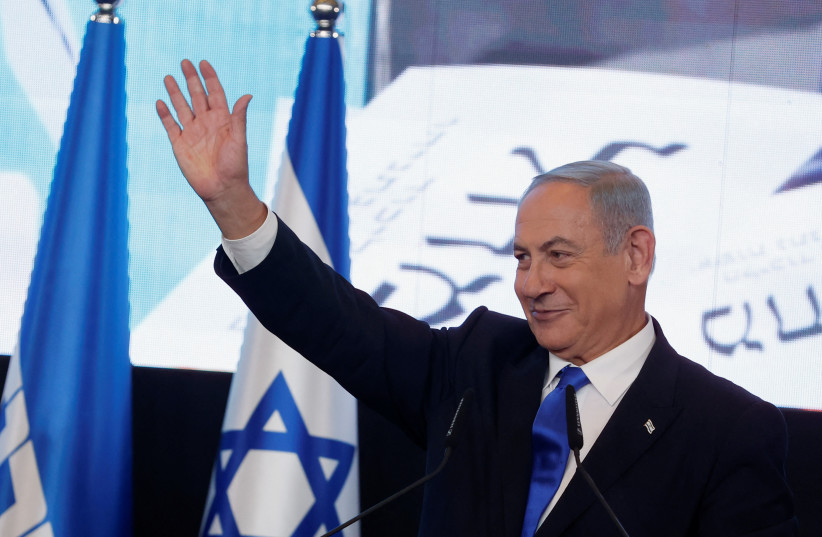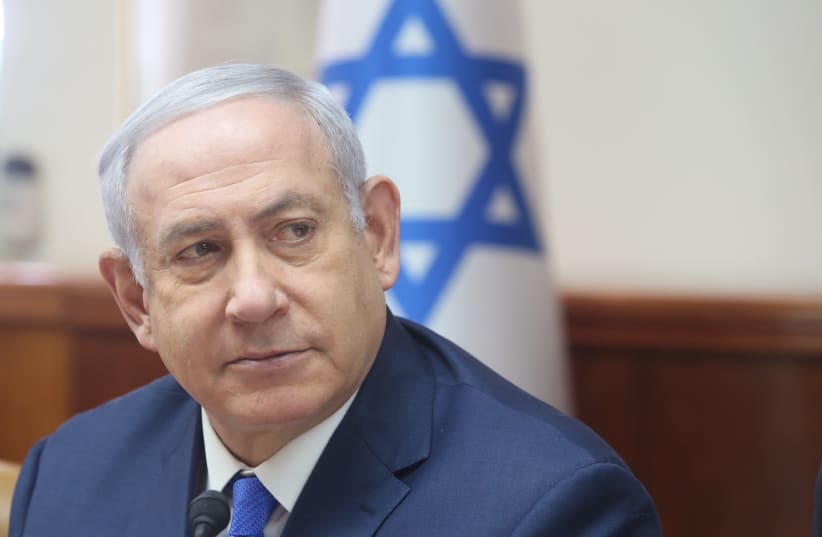A new arrangement on conflict of interest for Prime Minister Benjamin Netanyahu and political powers that could impact his ongoing corruption trials must be drawn up by the government, the Movement for Quality Government NGO said as it petitioned the High Court on Sunday hours before Netanyahu met with Attorney-General Gali Baharav-Miara.
An interim prohibition was proposed by the Movement to prevent Netanyahu from meeting with Baharav-Miara at all.
The Prime Minister’s Office gave few details about the hour-long meeting, during which Netanyahu and Baharav-Miara discussed “currents items on the agenda.” While the PMO said that the meeting was conducted in a “matter-of-fact” manner, tensions surrounding the two offices are rising as talk of dividing the A-G into two positions continues. Coalition partners have also been calling to curtail the High Court, mirroring critics’ calls to limit Netanyahu’s own powers.
"A conflict of interest settlement is the minimum required to ensure that Prime Minister Netanyahu's decisions and actions as Prime Minister are not affected by the indictments pending against him," said the Movement’s Head of Administrative Litigation Department Rotem Bavli Dvir.
The call to limit the prime minister invoked a previous conflict of interest arrangement which conditioned his ability to form a government in 2020 despite being under investigation for corruption. Much of then-Attorney-General Avichai Mandelblit’s implementation of the arrangement was upheld by a High Court ruling in 2021.
What did the Movement call for?
According to the potential arrangement, the resurgent Prime Minister would no longer be involved in the appointment of positions in the Israel Police, the Justice Ministry, judges and government legal advisors. In the previous agreement Netanyahu had partially agreed to this condition, but had argued that he retained involvement in High Court appointments.

The Movement called for Netanyahu to be limited from government decisions impacting the witnesses in his trial, though the court previously held that Netanyahu be allowed to make government decisions that could impact the witnesses unless he knew they would be affected.
The petition also demanded that Netanyahu be restricted from government decisions that could impact the media and communications landscape. This was upheld by the High Court in the last arrangement
Several of the cases against him involve accused misconduct by Netanyahu in his interactions with news and the communications industries. Case 1000 relates to the alleged conflict of interest in his role as communication minister and providing information on a telecommunications merger to a businessman who had provided the Netanyahu family gifts. In Case 2000, the Prime Minister is accused of pursuing legislation that would limit rivals of the Yedioth Ahronoth newspaper in favor of hiring journalists that would favorably cover him. Netanyahu was also accused, in Case 4000, of a quid pro quo for favorable coverage on the Walla newsite.
Like the previous conflict of interest arrangement, Netanyahu would be prevented from involvement in governmental legislative proceedings that would directly alter the proceedings of his criminal cases. The movement added another element in the call for a renewed arrangement, to forbid legislation to implement an override clause over High Court decisions.
An override clause gained traction during 2022 general election campaigning among several leading members of Netanyahu’s coalition, who seek to limit the power of the High Court through legislation that would allow for a simple Knesset majority to strike down the justices’ decisions.
Another coalition priority challenged by the potential conflict of interest deal would bar Netanyahu from splitting the A-G office into two positions. Like the High Court, right-wing politicians have argued that the A-G has too much power.
Not long before Netanyahu met with Baharav-Miara, the new Justice Minister Yariv Levin met on Sunday with his predecessor Gideon Sa’ar to finalize Levin’s entry into the role.
On Thursday, the Netanyahu trial proceedings were delayed, set to continue only next Monday.
Yonah Jeremy Bob contributed to this report.
